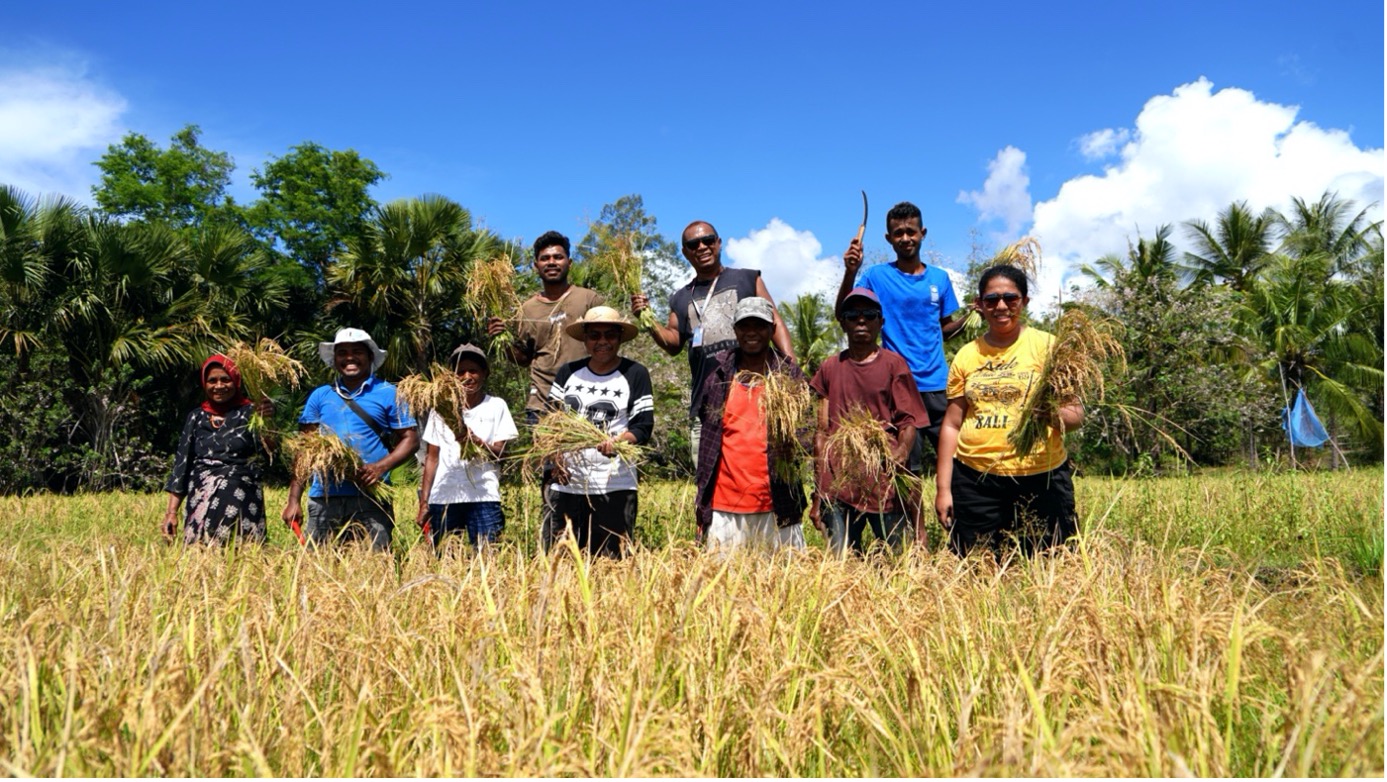Have you ever wondered about the role of rice farming in Suriname’s economy? Well, you’re in luck because in this article, we’ll dive into this fascinating topic and explore just how important rice farming is to Suriname’s economy. So, get ready to learn more about the impact and significance of rice farming in this small South American country.
Rice farming plays a crucial role in Suriname’s economy, contributing significantly to the country’s agricultural sector. In fact, it is one of the main sources of income and employment for many Surinamese farmers. Rice cultivation has a long history in Suriname, with its origins dating back to the colonial era when it was introduced by the Dutch. Today, rice remains one of the top agricultural exports of the country, driving economic growth and providing livelihoods for local communities. In the article, we will delve deeper into the various aspects of rice farming in Suriname’s economy, including its impact on international trade, employment opportunities, and overall economic development. So, if you’re curious to know more about the role of rice farming in Suriname’s economy, keep reading!
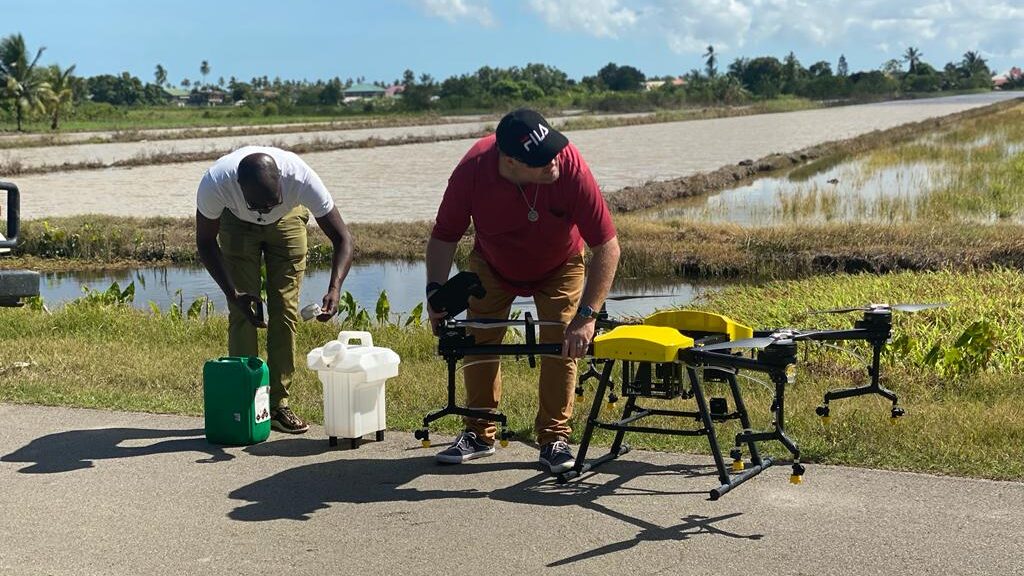
Overview of Suriname’s Economy
Suriname, located on the northeast coast of South America, is a small country with a diverse economy. It is known for its rich natural resources, including oil, gold, and bauxite, which have traditionally been the main drivers of its economy. However, in recent years, agriculture has emerged as a significant contributor to Suriname’s economic growth.
Major Industries in Suriname
Apart from agriculture, Suriname’s major industries include mining, manufacturing, and services. The mining sector, particularly bauxite and gold mining, has long been the backbone of Suriname’s economy. Manufacturing, including food processing, textiles, and chemicals, is also a significant contributor to the country’s GDP. Additionally, the service sector, which includes tourism, banking, and telecommunications, plays a vital role in Suriname’s economy.
Importance of Agriculture in Suriname
Agriculture has gained prominence in Suriname’s economy due to its potential to create employment opportunities, generate export revenue, and contribute to the country’s gross domestic product (GDP). Among the various agricultural activities, rice farming stands out as a key player in Suriname’s agricultural sector.
Introduction to Rice Farming
Rice farming, also known as paddy farming, is the cultivation of rice crop for human consumption. It involves various stages, including land preparation, planting, cultivation, harvesting, and processing. Rice farming has a long history in Suriname and has been a staple food for its population.
Historical Background of Rice Farming in Suriname
Rice farming was introduced to Suriname during the Dutch colonial period in the 18th century. The British brought slaves from West Africa to work on plantations, including rice farms. Over time, Suriname’s rice farming industry grew, and today it plays a crucial role in the country’s agriculture sector.
Rice Varieties Grown in Suriname
Suriname cultivates several varieties of rice, including the popular lowland rice and upland rice. Lowland rice requires flooded conditions, and it is grown in river basins and low-lying areas. Upland rice, on the other hand, is cultivated in non-irrigated areas with sufficient rainfall.
Contribution of Rice Farming to Suriname’s Economy
Rice farming makes a significant contribution to Suriname’s economy in terms of employment opportunities, export revenue, and its share in the country’s GDP.
Employment Opportunities in Rice Farming
Rice farming provides employment opportunities for a large number of people in Suriname, especially in rural areas. From land preparation to harvesting and processing, rice farming creates jobs throughout the agricultural value chain. It directly supports farmers, farm laborers, and workers in rice mills and processing plants.
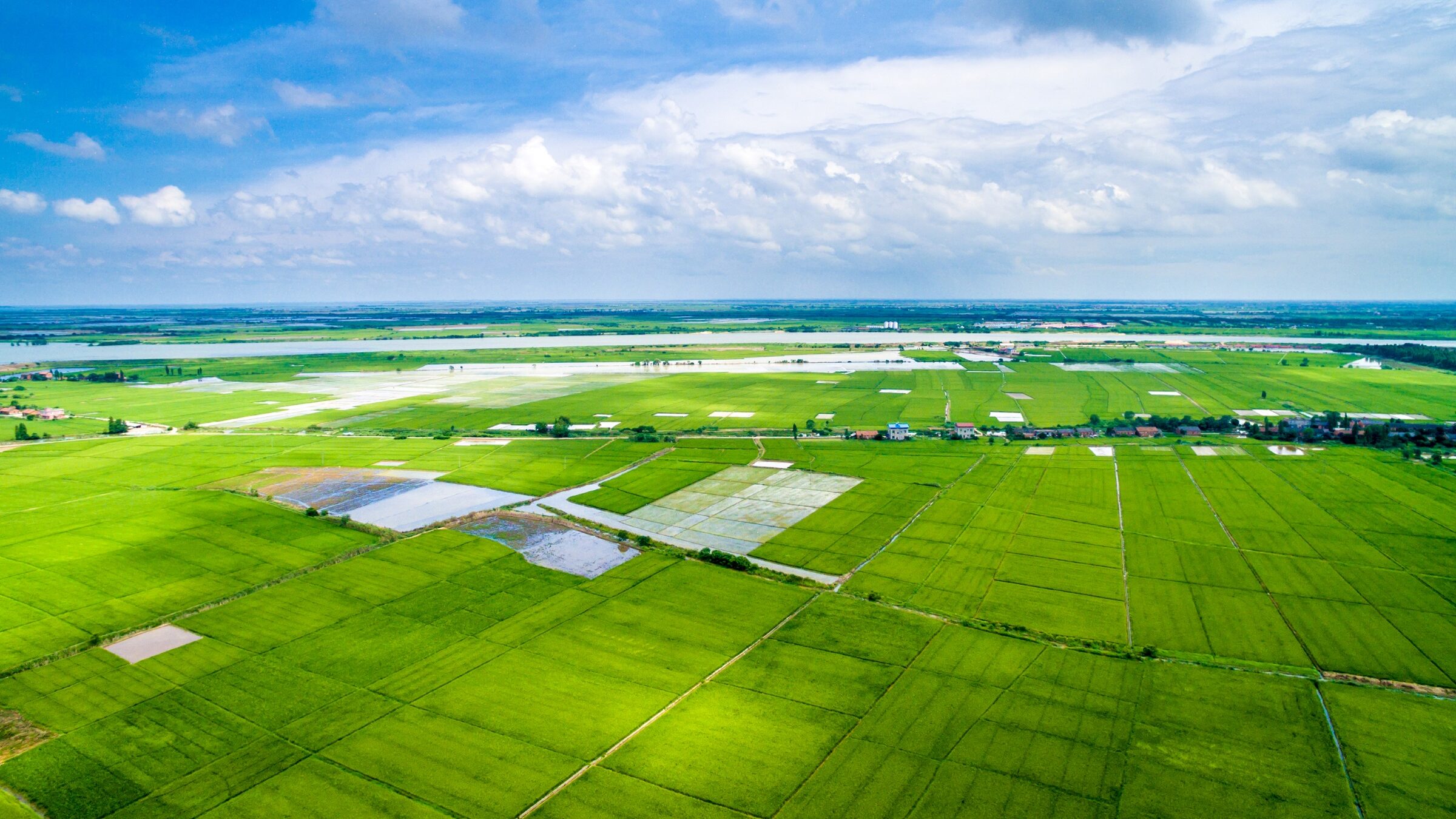
Export Revenue Generated by Rice Farming
Suriname exports a substantial amount of its rice production, contributing to the country’s export earnings. Surinamese rice has gained recognition in international markets for its quality and taste. Key export destinations for Surinamese rice include Caribbean countries, Europe, and North America.
Rice Farming’s Contribution to GDP
Rice farming plays a crucial role in Suriname’s gross domestic product (GDP). It is a significant contributor to the country’s agricultural sector, which constitutes a substantial portion of its GDP. The economic contribution of rice farming extends beyond the farming sector, as it stimulates economic activities in related industries, such as transportation, packaging, and distribution.
Infrastructure and Techniques in Rice Farming
To ensure successful rice farming, Suriname has developed appropriate infrastructure and adopted modern techniques.
Irrigation Systems in Rice Farming
Rice farming requires adequate water supply, particularly in lowland areas. Suriname has invested in irrigation systems to ensure sufficient water availability for rice cultivation. These systems include canals, pumps, and water management structures that help control water levels in rice fields.
Harvesting and Processing Techniques in Rice Farming
Modern harvesting and processing techniques are essential for maximizing rice yield and maintaining its quality. Suriname has adopted mechanized harvesting methods to improve efficiency and reduce post-harvest losses. Additionally, the country has established rice mills equipped with advanced processing technology for the removal of husk, bran, and polishing of rice grains.
Role of Technology in Rice Farming
Technology plays a vital role in enhancing productivity and efficiency in rice farming. Suriname has embraced modern agricultural machinery and equipment, such as tractors, harvesters, and seeders, to streamline farming operations. Furthermore, the use of precision farming techniques, such as satellite imagery and remote sensing, helps farmers monitor crop growth, water usage, and nutrient requirements.
Challenges and Opportunities in Rice Farming
While rice farming has made significant contributions to Suriname’s economy, it also faces various challenges. However, these challenges present opportunities for improvement and growth in the sector.
Climate Change and its Impact on Rice Farming
Climate change poses a significant challenge to rice farming in Suriname. Rising temperatures, changes in rainfall patterns, and increased frequency of extreme weather events affect rice production. Suriname’s farmers need to adapt to these changes by implementing climate-smart practices, such as improved water management and the use of drought-resistant rice varieties.
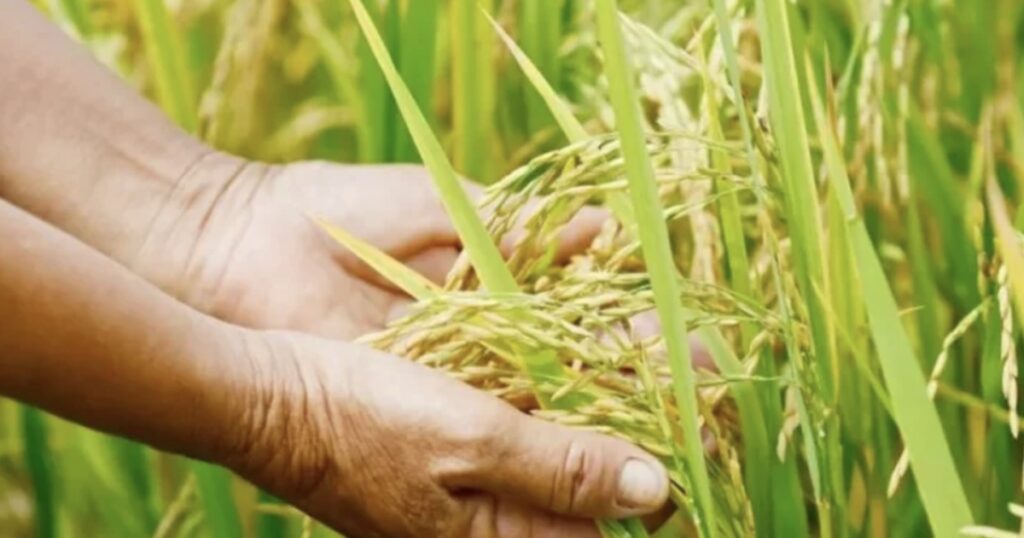
Pest and Disease Management in Rice Farming
Pests and diseases can significantly affect rice crops and reduce yields. Suriname has implemented pest and disease management strategies, including the use of integrated pest management practices, crop rotation, and the application of biological control methods. Effective monitoring and early detection of pests and diseases are crucial for implementing timely control measures.
Government Initiatives to Support Rice Farming
The Surinamese government has implemented various initiatives to support and promote rice farming. These include providing subsidies and incentives to farmers, investing in infrastructure development, facilitating access to credit and loans, and promoting research and development in rice production techniques.
Sustainable Practices in Rice Farming
Suriname is increasingly adopting sustainable practices in rice farming to minimize the environmental impacts and ensure long-term productivity.
Water Management in Rice Farming
Water management is a critical aspect of sustainable rice farming. Suriname promotes efficient irrigation practices, such as the use of water-saving technologies and controlled irrigation systems. Additionally, farmers are encouraged to adopt alternate wetting and drying techniques, which reduce water usage while maintaining optimal growing conditions for rice.
Integrated Pest Management in Rice Farming
Integrated pest management (IPM) is an essential approach to minimize the use of chemical pesticides in rice farming. Suriname promotes the use of IPM practices by providing training and technical assistance to farmers. This approach involves monitoring pest populations, implementing cultural practices, and using biological control agents to manage pests effectively.
Adoption of Organic Rice Farming
Organic rice farming is gaining popularity in Suriname as consumers increasingly demand pesticide-free and environmentally friendly rice. Suriname has encouraged farmers to adopt organic farming practices by providing training, certification, and market support. This shift toward organic farming not only benefits the environment but also enhances the market value of Surinamese rice.
Market Trends and Future Prospects
The global rice market presents both opportunities and challenges for Suriname’s rice farming industry.
Global Rice Market Overview
Rice is a staple food for more than half of the world’s population, making the global rice market a crucial arena for Suriname. The market is influenced by factors such as population growth, changing dietary preferences, and trade policies. Suriname needs to stay competitive by maintaining high-quality standards and exploring new markets.
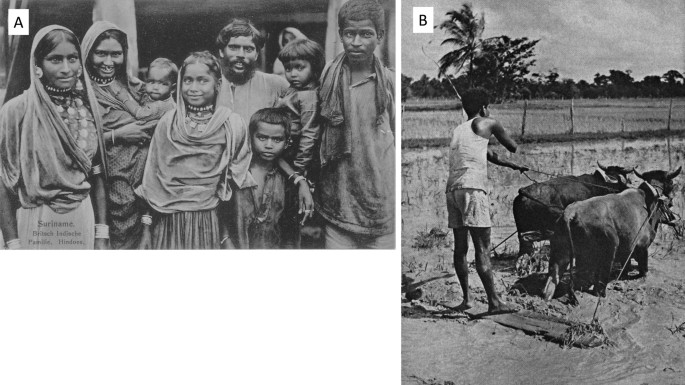
Demand for Surinamese Rice
Surinamese rice enjoys a good reputation in international markets for its taste and quality. There is a growing demand for Surinamese rice, particularly in niche markets where consumers value organic and sustainable products. Suriname can capitalize on this demand by promoting its unique rice varieties and marketing the country as a reliable supplier of high-quality rice.
Potential Growth Areas for Rice Farming in Suriname
Suriname has untapped potential for expanding its rice farming sector. By utilizing available arable land and adopting advanced farming techniques, the country can increase rice production and penetration into international markets. Furthermore, investing in research and development to develop new rice varieties and improve farming practices can pave the way for sustained growth in the sector.
Rice Farming and Food Security
Food security is a crucial concern for Suriname, and rice farming plays a significant role in ensuring a stable food supply for the population.
Role of Rice Farming in Meeting Suriname’s Food Needs
Rice is a staple food for Surinamese people, and rice farming makes a significant contribution to meeting their food needs. With a growing population, the importance of rice farming in ensuring food security becomes even more critical. By increasing productivity and adopting sustainable practices, Suriname can enhance its self-sufficiency in rice production.
Food Distribution and Accessibility in Suriname
While rice farming plays a role in meeting Suriname’s food needs, challenges related to food distribution and accessibility persist. Efforts are needed to improve transportation infrastructure and logistics to ensure the efficient and timely delivery of rice to consumers, particularly in remote areas. Additionally, initiatives to promote affordable rice prices and support vulnerable populations further contribute to food accessibility.
Food Security Challenges in Suriname
Suriname faces various food security challenges, including climate change, natural disasters, and income inequality. These challenges can affect rice farming and, subsequently, the availability and affordability of rice. To address these challenges, Suriname needs to strengthen its agricultural resilience, invest in climate adaptation measures, and promote inclusive agricultural policies.
Environmental Impacts of Rice Farming
Rice farming, like any other agricultural activity, has environmental implications that need to be carefully managed.
Water Pollution and Rice Farming
Excessive use of fertilizers and pesticides in rice farming can lead to water pollution, particularly if not managed properly. Suriname promotes sustainable agriculture practices, including the judicious use of inputs and the adoption of integrated nutrient management strategies. These practices aim to minimize the environmental impact while maintaining optimal rice production.
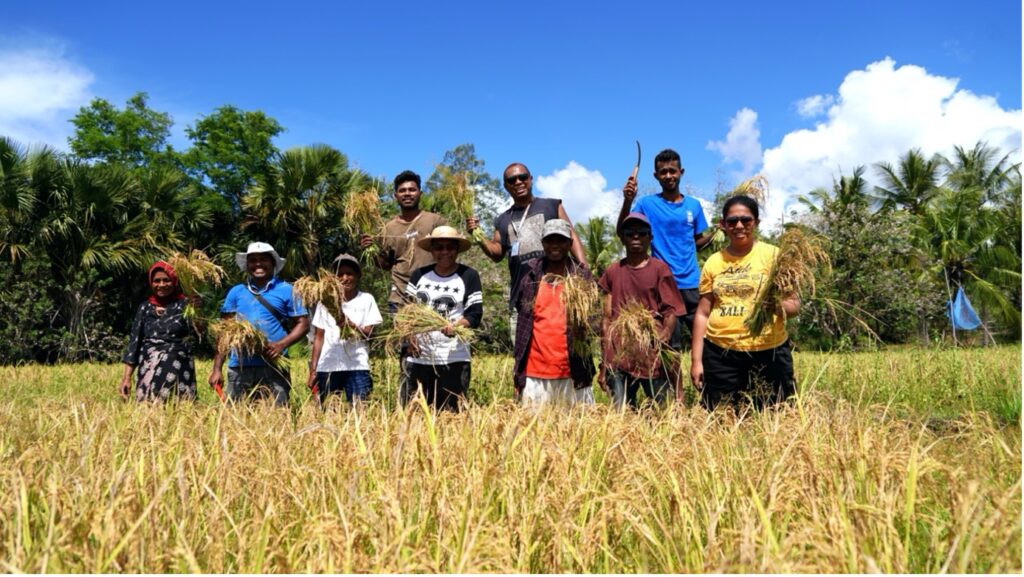
Deforestation and Rice Farming
The expansion of rice farming can sometimes contribute to deforestation, as land is cleared for agricultural purposes. Suriname has implemented measures to prevent indiscriminate deforestation, including laws and regulations for land use planning and forest conservation. It is essential to strike a balance between agricultural expansion and forest preservation to ensure sustainable rice farming practices.
Biodiversity Conservation Efforts in Rice Farming
Rice farming can have both positive and negative effects on biodiversity. Suriname recognizes the importance of biodiversity conservation and has implemented measures to protect fragile ecosystems and wildlife habitats. By promoting agroforestry practices, preserving wetlands, and preserving natural vegetation, Suriname aims to enhance biodiversity while supporting sustainable rice farming.
Role of Rice Farming in Rural Development
Rice farming plays a crucial role in rural development in Suriname, particularly in terms of income generation and infrastructure improvement.
Income Generation in Rural Areas through Rice Farming
Rice farming provides income opportunities for rural communities, helping alleviate poverty and improve livelihoods. Farmers and farm laborers directly benefit from rice farming, while the income generated stimulates economic activities in rural areas, leading to overall rural development.
Improvement of Rural Infrastructure through Rice Farming
Rice farming contributes to the improvement of rural infrastructure in Suriname. The government and other stakeholders invest in developing irrigation systems, road networks, and storage facilities to support rice farming activities. Improved infrastructure not only facilitates efficient farming operations but also enhances connectivity and access to markets for rural communities.
Socio-economic Impact on Rural Communities
Rice farming has a significant socio-economic impact on rural communities in Suriname. It provides employment opportunities, boosts agricultural productivity, and improves living standards. The development of rural communities through rice farming also helps reduce rural-urban migration, contributing to a more balanced and inclusive development across the country.
Government Policies and Support for Rice Farming
The Surinamese government has implemented various policies and initiatives to support the rice farming sector.
Subsidies and Incentives for Rice Farmers
The government provides subsidies and incentives to rice farmers to enhance their productivity and competitiveness. These include financial support for inputs, equipment, and infrastructure development. By reducing production costs and providing incentives, the government aims to create a conducive environment for rice farming and encourage farmers to adopt sustainable practices.
Research and Development Funding for Rice Farming
Research and development (R&D) play a crucial role in enhancing the productivity and sustainability of rice farming. The government invests in R&D projects to develop new rice varieties, improve farming techniques, and address specific challenges faced by rice farmers. This funding helps advance knowledge and innovation in the rice farming sector.
Import-Export Policies for Rice
The Surinamese government formulates import and export policies to regulate the rice trade and protect domestic rice production. These policies aim to ensure fair competition, maintain quality standards, and promote the export of Surinamese rice. By providing a favorable trade environment, the government supports the growth of the rice farming sector and contributes to Suriname’s economy.
Collaboration and Partnerships in Rice Farming
Collaboration and partnerships between various stakeholders are essential to promote and sustain the growth of rice farming in Suriname.
International Cooperation in Rice Farming
Suriname engages in international cooperation in rice farming by participating in regional and international forums and organizations. Such cooperation facilitates knowledge sharing, technology transfer, and market access for Surinamese rice. Additionally, it promotes harmonization of policies and standards, ensuring that Surinamese rice meets international quality requirements.
Public-Private Partnerships for Rice Farming
Public-private partnerships (PPP) play a vital role in supporting rice farming in Suriname. The government collaborates with private enterprises, agricultural cooperatives, and development organizations to promote sustainable rice farming practices, provide technical assistance, and facilitate access to markets. PPPs help leverage expertise, resources, and investments, leading to improved productivity and competitiveness in the rice farming sector.
Knowledge Sharing and Capacity Building Initiatives
Sharing knowledge and building the capacity of rice farmers is essential for the sustainable development of the sector. Suriname encourages knowledge sharing through training programs, workshops, and farmer field schools. These initiatives aim to equip farmers with the necessary skills and knowledge to adopt best practices, enhance productivity, and respond to emerging challenges in rice farming.
Conclusion
Rice farming in Suriname plays a vital role in the country’s economy, contributing to employment generation, export revenues, and food security. Despite the challenges it faces, such as climate change and environmental impacts, the sector presents opportunities for growth and development. By adopting sustainable practices, enhancing infrastructure, and promoting favorable policies, Suriname can harness the potential of rice farming and secure a prosperous future for its economy and people.
